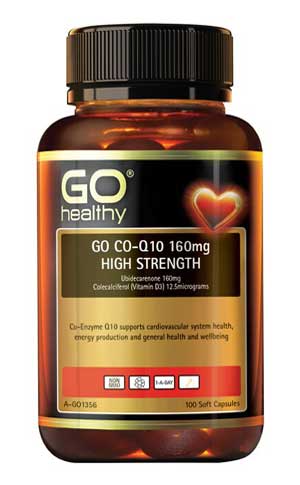Coenzyme Q10 (CoQ10) is a naturally occurring compound found in every cell of the human body. It plays a crucial role in energy production and acts as a powerful antioxidant, protecting cells from oxidative damage. As we age, our natural levels of CoQ10 decline, leading many to turn to supplements for its potential longevity benefits. But what exactly does CoQ10 do, and how can it support a longer, healthier life? Let’s explore.
What is Coenzyme Q10?
CoQ10 is a fat-soluble compound that exists in two forms: ubiquinone and ubiquinol. The body primarily uses it in its active form, ubiquinol, to aid in cellular energy production. It is essential for mitochondrial function, helping cells generate ATP, which fuels all biological processes.
How CoQ10 Supports Longevity
Boosts Cellular Energy Production
CoQ10 plays a key role in the mitochondria, the powerhouse of the cell, helping convert nutrients into energy. This function is critical for maintaining optimal health and preventing age-related decline in energy levels.
Acts as a Powerful Antioxidant
Aging is closely linked to oxidative stress, which damages cells and accelerates aging. CoQ10 helps neutralize free radicals, reducing oxidative damage and supporting cellular health.
Supports Heart Health
The heart is one of the most energy-demanding organs, making it especially reliant on CoQ10. Studies suggest that CoQ10 supplementation may help maintain healthy blood pressure levels and support overall cardiovascular function, potentially reducing the risk of age-related heart conditions.
Enhances Brain Function
Cognitive decline is a common concern with aging, and oxidative stress contributes significantly to neurodegenerative diseases. CoQ10 has been studied for its neuroprotective properties, potentially helping to preserve memory and cognitive function over time.
Supports Immune Function
A strong immune system is essential for longevity. CoQ10 has been shown to enhance immune response, helping the body defend against infections and chronic diseases that can contribute to premature aging.
Best Sources of CoQ10
While the body naturally produces CoQ10, dietary sources can help maintain levels. Some of the best food sources include:
-
Fatty fish (salmon, tuna, mackerel)
-
Organ meats (liver, heart, kidney)
-
Nuts and seeds (pistachios, sesame seeds)
-
Vegetables (spinach, broccoli, cauliflower)
-
Legumes (soybeans, lentils, peanuts)
Supplementing with CoQ10
As natural CoQ10 levels decline with age, supplementation can be beneficial, especially for individuals over 40. CoQ10 supplements are available in two primary forms:
-
Ubiquinone – The oxidized form, which the body converts into active ubiquinol.
-
Ubiquinol – The active form, which is more easily absorbed and utilized by the body.
For optimal absorption, CoQ10 should be taken with a meal containing healthy fats. Dosages typically range from 100mg to 300mg per day, but individual needs may vary based on age, health status, and lifestyle factors.
Conclusion
Coenzyme Q10 is a crucial nutrient for energy production, antioxidant defense, and overall longevity. Whether through diet or supplementation, maintaining optimal CoQ10 levels may help support heart health, cognitive function, and immune resilience as we age. If you're looking to enhance your long-term well-being, incorporating CoQ10 into your routine could be a valuable step towards a healthier, more vibrant life.

